

Matthew Says

Sustainable Travel
Hi everyone! Although the weather has deteriorated in the past few weeks, we are now well on our way to summer and this summer there will be a series of exciting moves with regards to travel in Birmingham that I thought it would be useful to update students on.
Clear Air Zone
First of all, on 1st June, Birmingham City Council is introducing a new ‘clean air zone’ that marks an important step in attempting to improve air quality in the city of Birmingham. Casting my mind all the way back to the #BrumBreathes air pollution event that I organised in collaboration with Sustrans in the first term, it is clear that air pollution is a pertinent and urgent issue that must be addressed; it is estimated that upwards of 900 deaths a year in Birmingham are linked to man-made air pollution. The purpose of the clean air zone is to improve air quality in the very centre of Birmingham to discourage the most polluting vehicles from entering the area, in an attempt to reduce the levels of NO2.
But what does the new clean air zone mean for students?
Well from the 1st of June if you have a particularly polluting vehicle and you drive within the clean air zone at any point, you will face a charge.
The Clean Air Zone encompasses all the roads within the A4550 Middleway Ring Road (but the Middleway itself).
If you drive into the city centre, check whether your vehicle will be charged at https://www.gov.uk/clean-air-zones or https://www.brumbreathes.co.uk/ where you can also make online payments.
The council have suggested that they might apply short term exemptions from the charges as people adapt to the new zone, but please check out the website to avoid being caught out and facing a fine.
You might also be entitled to a Government grant to upgrade your vehicle to a less polluting one!
The Clean Air Zone represents an important and welcome step by the City Council to seek to address the dangerously high levels of air pollution in the city. If you have any further questions on this, please feel free to drop me a message or an email!
West Midlands Cycle Hire
Some of you may have noticed some of the bike racks that have begun to pop up around campus in the past couple of weeks. In very exciting news, as part of the wider West Midlands Cycle Hire scheme, the University will be welcoming a fleet of bikes to campus on 24th May. Myself, Imogen (Disabled Students’ Officer) and Charlotte (Welfare and Community Officer) have been delighted to support the introduction of these bikes to campus.
Never will it be so easy to cycle to and from campus and off into the wider city of Birmingham and I am thrilled to have supported and engaged with their introduction. There will be a total of 1,500 bikes in the fleet, eight docking stations across campus and bikes that are available to hire 24/7. These docking stations on campus will be situated at: Old Gym, The Guild, Met and Mat, Tennis Courts, Chamberlain, Pritchatts Park Accommodation Village (and some just off campus as well!). The docking stations can be found at the purple pins locations on this interactive map .
It costs £1 to unlock a bike and then 5p per minute of cycling after that. To give a better idea of what this means, if you were to cycle for 10 minutes that would be £1.50, 20 minutes would be £2.00 and 30 minutes would be £2.50.
With the cycling ‘superhighway’ (the blue cycle path) heading straight from campus to the city centre, I am really hoping this will encourage students to have fun, exercise and travel sustainably all at once. Please cycle safely and be sure to wear a helmet!
To find out more about the bikes in general, please click here or drop me a message.
National Express Portal
Another fantastic step for sustainable travel at the University has been a project that Charlotte (Welfare and Community Officer) and Jules (Education Officer) have been working on, in collaboration with National Express and the University. By following this bespoke portal and registering it is now possible to get reduced bus ticket fares in the local Birmingham area:
The portal offers a range of weekly, monthly and termly and yearly passes specifically for students. If you are a regular user of public transport, check out the range of options for the summer break and the new academic year.
Although National Express do also run national coaches, these discounts will only be for the local bus service.
Voi Scooters
The Voi e-scooters have been available to hire in Selly Oak and wider Birmingham for some time now and they represent a fun and sustainable method of travel!
From the end of May, it will now be possible to travel on Voi scooters on parts of campus and the Vale, which is something myself and Imogen have been consulted on. While it will not be possible to travel through the Green Heart or fully pedestrianised areas on campus, we hope this development will encourage students to travel sustainably via e-scooters! For an idea where you will be able to use scooters on campus please consult this map .
As our campus has high levels of pedestrian traffic and busy buildings, Voi parking will be at fourteen bays across our site (see blue pins on the interactive map). The e-scooters are vehicles and are for riding on the roads, as a result, on campus access will be restricted in busy pedestrian-only areas, and there will be speed limits on busy routes shared by pedestrians, cyclists and scooter riders. Voi encourage users to refresh their road knowledge here . It goes without saying that it is important to travel safely on these e-scooters. To encourage wearing a helmet, Voi are offering savings on scooter hire with helmet selfies! For more information, please click here .
Please remember that when you leave the scooter, you make sure it is not restricting or blocking a pavement, as this can be very difficult for those with accessibility issues. I would love to hear everyone’s thoughts on the general introduction of e-scooters to Birmingham and if you would like to reach out to our disabled students’ officer regarding any concerns, please drop Imogen an email ( [email protected] ).
An important and ever present caveat to add to this news is the ongoing COVID-19 pandemic. While sustainable travel is important for reducing CO2 emissions and local air pollution, we remain in the midst of a pandemic, so please only travel on public transport when you feel safe and when it is advised by the government.
For more info about how to travel sustainably and safely in Birmingham, please check out the sustainability travel guide produced in collaboration with the University for Go Green Week 2021. Any further questions please don’t hesitate to get in touch with myself ( [email protected] ), the University’s Sustainable Travel Officer, Edward ( [email protected] ) or Imogen ( [email protected] ).
Your Officer Team 2023-2024

Amira Campbell
Guild president.

Tianjie Liu (Alice)
International officer.

Dean Turner
Welfare & community officer.

Harry Brooks
Activities and employability officer.

Ben Lockley
Postgraduate officer.
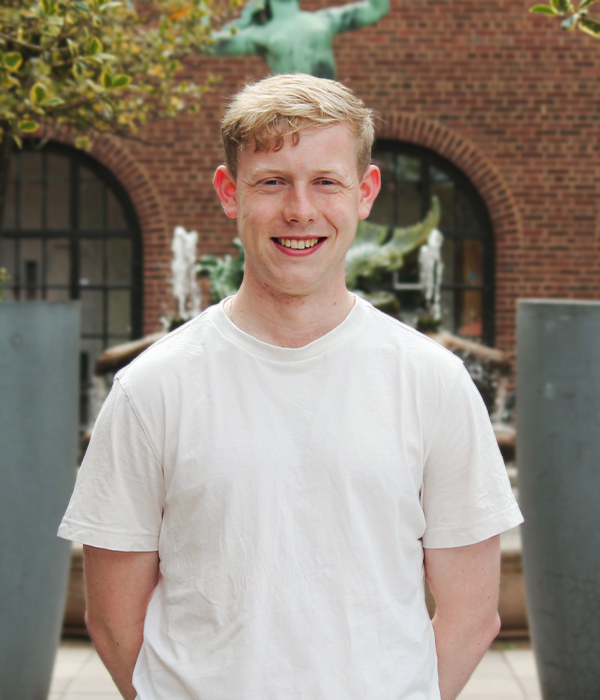
Education Officer

Cat Hardiman
Sports officer.

Part Time Officer Team
View details, latest student deals.

The number one resource for sustainability in education

- Biodiversity
- Business and Industry Interface
- Climate Change Adaptation
- Community and Public Engagement
- Food and Drink
- Health and Wellbeing
- Learning and Teaching
- Procurement and Supplier Engagement
- Resource Efficiency and Waste
- Staff Engagement and Human Resources
- Student Engagement
- Construction and Renovation
- Travel and Transport
- Caplor Horizons
- Change Agents UK
- City of Trees
- Cynnal Cymru – Sustain Wales
- Ecocampus (Belgium)
- FEE EcoCampus
- Society for the Environment
- SOS UK - Students Organising for Sustainability
- Student Hubs
- Sustainable Restaurant Association
- The Energy Consortium
- Sustainability Consulting Services
- The SDG Accord
- Green Gown Awards
- Future Graduate Skills: A Scoping Study
- Sustainability Leadership Scorecard
- Living Labs
- Biodiversity on Campus: An EAUC Practical Guide
- EAUC Annual Conference
- Climate Emergency Framework
- A Guide for Members of Governing Bodies
- Making the Business Case for Sustainability
- Sulitest - Sustainability Literacy Test
- Engaging Professional Departments with Sustainability
- SORTED Guide to Sustainability in Further Education
- Waste Guide
- International
- Ireland North & South
Resource Details
Resource provider.

Related Resources
Other resources that you may be interested in
- video Green Gown Awards 2016 – Sustainability Staff Champion – David Emley – Winner
- video Green Gown Awards 2015 – Leadership Award - Dr Jane Davidson - Winner
- web page Green Gown Awards 2017 - Ayrshire College - Winner
- pdf Job Description - Energy, Environment and Sustainability Assistant at Aston University Dec 2013
Environment and sustainability - University of Birmingham
Tags: sustainability | university | environment | Birmingham
Share this resource
- ASPX Policies, initiatives and activities
The University of Birmingham's Environmental and related policies state their overall aims and objectives. They are committed to improving performance and engaging with the University community. The Green Impact Scheme for example is a great way for staff to take part. The intranet pages detail our policies, initiatives and activities in the following areas: Waste reduction and recycling Sustainable travel Carbon management Biodiversity Sustainable food Student initiatives

The number one resource for sustainability in post-16 education
Stay Informed
Sign up for sustainability news and updates from EAUC
The Sustainability Exchange website and its content are © 2024 Environmental Association for Universities and Colleges (EAUC). All Rights Reserved, except where otherwise stated.

Environmental Networking Platform for Children and Youth by SAMSUNG E&A

- Tunza Eco-generation
- Eco-generation&SAMSUNG E&A
- Climate Change
- Living Green
- Ambassador report
- World report
- Ambassador program
- Opportunities
- Middle East
- Asia Pacific
- North America
- South America
- Online Events
- Junior Engineering Academy
- Our Actions >
- Asmita Gaire says : Greetings arushi I hope you are doing well Very detailed Thank you so much for this report Keep writing Green cheers Regards Asmita Gaire Posted 01-06-2020 11:15
- says : thanks for sharing Posted 07-02-2018 10:05
- says : good report Posted 07-02-2018 10:03
- says : Very late to say, but happy new year Arushi! I hope to continuously read your detailed articles this year as well. Have a great day :) Posted 19-01-2017 01:56
- says : Hi Arushi, It's good to know you are adapting well to the new surrounding and that you already stepped into the student organization for environment! I see the university is also engaged in many environmentally friendly activities. I have no doubt that your previous experience will be an excellent input to the community. Hope you enjoy! Posted 16-01-2017 11:35
- Arushi Madan says : @Rohan: Thanks. I am already involved in/contributing to our University's green projects like Conservation Volunteers, Junkbusters. This was the first thing I did after joining my Uni. Posted 11-01-2017 19:34
- Rohan Kapur says : Well reported Arushi. University of Birmingham is doing great green jobs. I hope you will soon join them & lead your way to sustainability. Posted 11-01-2017 18:07
You must log in to post a comment
Post a comment
Please sign in
Signin'up is easy! Create new account
Applications are open for the Leadership Academy! Date: June to August Type: Online
EE 30 Under 30 2024 Call for Nominations Date: TBD to 25/03/2024 Type: Online
Eco-generation Sitemap
- Eco-generation& SAMSUNG E&A

- Legal Notice |
Sustainable travel
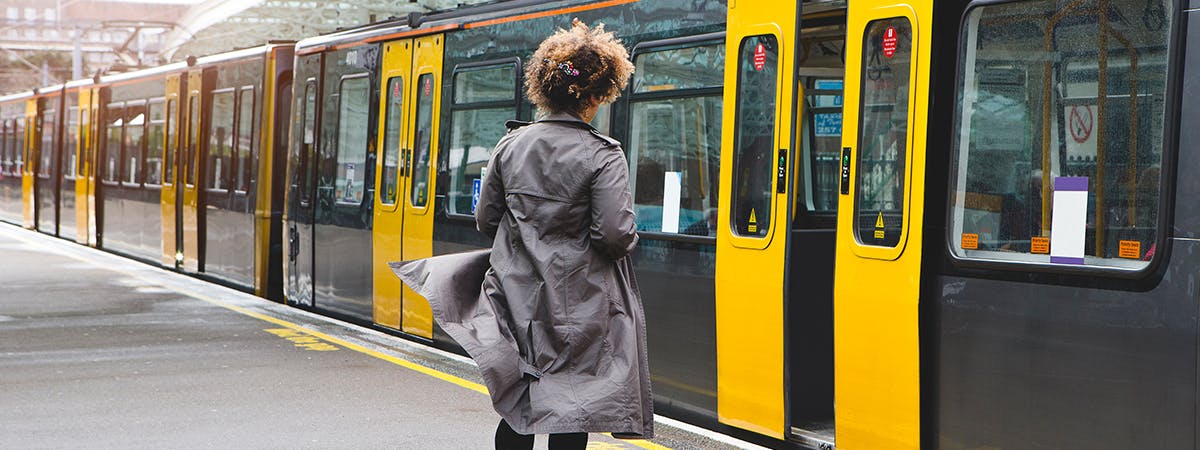
Vehicle emissions emit a mix of pollutants such as carbon monoxide and particulates, contribute to climate change, reduce air quality and increase the risk of respiratory diseases. Sustainable travel can make a huge difference to the environment, boost your health, and could relieve the strain on your pocket - find out how below.
Birmingham City Council introduced a Clean Air Zone in 2021. The zone charges the most polluting vehicles to enter parts of the city, in a bid to tackle air pollution.
Find out more about the Clean Air Zone
View our sustainable travel guides
Travelling to City Centre Campus
Travelling to City South Campus
Inter-campus travel map
Download our Travel Plans
The purpose of our Travel Plans are to encourage the use of sustainable transport and anticipate the changes in travel provision and behaviour.
City Centre Campus: Travel Plan (2018-20)
City South Campus: Travel Plan (2018-20)
BCU Travel Action Plan 2018-2020
A staff and student travel survey was planned for March 2020 to input into a Travel Plan for 2020-2022, however this was delayed due to Covid-19. We are currently developing our next full Travel Plans for 2022-2024.
In the meantime, we have developed an Interim Travel Plan to ensure that we are still taking opportunities to encourage the use of sustainable transport and build on the impacts that Covid-19 has had on travel, ways of working and studying.

Walking and running

Bus and Metro

Inter-campus travel
Go green travel guide.
Sustainable travel can make a huge difference to the environment, boost your health, and save you money.
Check out our Go Green Travel Guide which helps you navigate around our sports facilities in a sustainable way.
Recent searches
We won't record your recent searches as you have opted out of functional cookies. You can change this on our Manage Privacy page should you wish to.
Popular searches
- Scholarships
- Postgraduate Guide
- Student Finance
- Student Support
Suggested searches
- Life in Birmingham
- Graduate Scholarship
Cookies on this website
We use cookies to make our website work properly. We'd also like your consent to use analytics cookies to collect anonymous data such as the number of visitors to the site and most popular pages.
I'm OK with analytics cookies
Don't use analytics cookies
- Skip to content
- SWM Membership
- Members directory
- Annual Membership Benefits and Fees
- Become a member
- Supporting Member Packages
- Business Support Hub
- West Midlands Net Zero Business Pledge
- Consultancy
- Climate Change Adaptation Support
- Communications and Reporting
- Our projects
- Upcoming Events
- Past Events
- History and Achievements
- Communications & Impact
- Our Reports & Guides
- Our Events & Presentations
- Our Newsletters
- External Case Studies
- External Reports
- Roadmap to 2030
- Governance and Board
- External Advisory Committee
- Annual Performance
- Equalities, Diversity & Inclusion
Find out about our Roadmap to 2030
University of Birmingham

The University of Birmingham makes a significant contribution to sustainable development, not only in its role as an globally recognised provider of research and teaching, but also in the way it performs as a business engaging positively with the local and wider community. Whether it’s their environmental policies, research into sustainable energies or their schemes to encourage staff and students to travel more sustainably, sustainability is at the core of the University’s activity.
“Our 2020 Strategy details how the activity of the university will feed in to the SWM roadmap, such as:
- contributing to over £1 billion to the local economy;
- playing a key role in HS2 via the largest railway research group in Europe
- transforming healthcare through Birmingham Health Partners;
- changing the built environment on campus (almost £500 million of projects) with a strong sustainability focus; and
- researching the natural environment with the Birmingham Institute of Forest Research, which was funded with a £15 million gift to study the impact of climate and environmental change on woodlands;
- substantial progress made towards delivering our commitment to reduce our carbon foot print by 20% by 2020 based on 2005/06 baseline.”
SWM has worked closely with the university on many activities and upon joining as members many years ago, commented: “Working with SWM gives the University of Birmingham an excellent opportunity to improve the reach, influence and impact of our research. It will help us develop not only a more sustainable campus but also contribute to a thriving and environmentally sustainable region.”
We have many contacts at the University, with our primary contact being Matt Beveridge, Estates Innovation Manager, who is also a SWM Board member.
Website by Slingshot
Lost Your Password?
Registration is disabled

Sustainability
This is incredibly important as it forms part of our civic responsibility to measure and reduce our carbon footprint, as well as deliver social impact and value.
Taking the right path
We have a clear commitment to taking a responsible and sustainable path in the way we operate and educate. We actively reduce our waste and energy usage as well as our carbon footprint.
We support and encourage diversity and inclusion and promote understanding and collaboration. We take steps to measure and increase our social impact, which enables us to deliver our civic responsibilities and commitments.

Small changes make a big difference Our role in the University’s sustainable strategy is to deliver responsible events that make a big impact, without costing the earth. Here are just a few ways that we’re helping to make a difference.
Living sustainably.
Encouraging our teams and guests to travel responsibly, using electric vehicles or public networks.
Reducing waste
Serving and merchandising food in a way that meets the need, as well as recycling food and coffee grounds.
Promoting plant based
Offering low carbon, locally sourced and dairy-free alternatives on all event menus.

Reducing plastic
Removing all plastic packaging delivered to site as well as single-use bottles across our retail estate.
Saving trees
Reducing paper consumption through digital event packs and online maps.
Cutting emissions
Reducing client travel with virtual show-rounds and meetings.
Our commitment
As part of our commitment to sustainability, we’re working towards ISO 20121 accreditation. Created by the International Organisation for Standards (ISO), this is a voluntary international standard for sustainable event management.
Through ISO 20121, we are:
- Learning to manage the associated social, economic and environmental impacts of our events and conferences.
- Working with teams across the University to improve sustainability throughout our entire event management cycle and supply chains.
- Building a better understanding of sustainability to ensure your event is sustainable from start to finish.


Sustainability
Reducing our carbon footprint.
- Sustainability at University College Birmingham

At University College Birmingham, our areas of environmental impact and influence include our campus, our curriculum and our community. We take sustainability very seriously and will use our position to embed sustainability across our operations and our place in the community and society at large. We welcome student and staff feedback on how to best shape our sustainable practices.
Get in touch
Our sustainability roadmap
We are working closely with regional sustainability champion Sustainability West Midlands, joining a range of other educational institutions, the wider public sector and businesses to work in partnership towards the West Midlands Sustainability Roadmap to 2030.
Through this relationship, we have commissioned a study and the development of our own roadmap for sustainability, designed to highlight priority areas we can improve on moving forward, from reducing food waste to sustainable travel.
Key targets include:
- Gaining ISO Environmental Management Standards
- Reducing our electricity, gas and water consumption
- Building on our recycling and waste initiatives
- Increasing green spaces to support local biodiversity

Lewis Walker, Deputy Head of our Birmingham College of Food, advises on the local food strategy

Student volunteers taking part in a collaborative canal clear-up for Brum Goes Green Week

Kapow! Pupils unmask food 'superpowers' at University for International Chefs Day

Award-winning Garima Poddar leading food students in making 'wonky veg' dishes for the community

Brum goes waste-free in Victoria Square to support sustainable practices in Birmingham

Birmingham Bike Foundry visiting the University to offer advice on cycle safety and maintenance

Students trying out mini vegan burgers made at the University to promote meat-free alternatives

West Midlands Railway gave out freebies and discounts at our Sustainable Travel Fair
Playing our part
- Lecturers from our Birmingham College of Food are key advisers on the Birmingham Food System Strategy being launched by the Food System Team at the Department of Public Health for Birmingham City Council.
- By partnering with a local company, all of our campus waste is either separated for recycling or treated and processed into energy to assist in providing electricity to around 30,000 local homes.
- We hold and support university and community sustainability drives including Brum Goes Green Week and our own sustainability fairs.
- We provide plant-based compostable cutlery in our take-out eateries and provide students with incentives and discounts for using their own reusable drink cups to help avoid single use items.
- We promote sustainable campaigns from organisations such as Save Soil with our students through our weekly news bulletins.
- We are working with our suppliers to ensure the goods and services we source have the smallest carbon footprint.
- We have started to provide training on sustainability in a higher education environment to inform our sustainability practices.

Rooftop garden at McIntyre House

Solar panels on the roof of Moss House

Our award-winning Moss House campus

Plans for our Centre for Sustainable Construction at the James Cond building
Campus buildings
Moss House, our newest campus building, was one of just nine buildings in the West Midlands to win at the 2021 regional RIBA awards from the prestigious Royal Institute of British Architects. Described as “inventive and experimental”, the building features:
- Photovoltaic solar panels
- Recycling stations
- Smart lighting, sensor and timer taps to minimise water waste
- Landscaped, biodiverse courtyard
- Designated electric vehicle charging points
McIntyre House, which also won a RIBA award, also has these features, plus a top floor terrace with seating, planting and a water feature offering panoramic views across the city centre.
Find out more
Linking to the curriculum
We support sustainability-focused modules within courses, wherever possible. These include Sustainable Aviation Practices through to Gastronomy and Sustainable Food Management.
Our new engineering and construction course offering is firmly centred around sustainable building practices and features production line technology to renewable energy simulators, rigs and specialist software for training learners in skills that support employers and their supply chains.
The refurbishment of the art deco James Cond building , an historic former print works in the Jewellery Quarter’s Conservation Area, will honour the area’s heritage while providing the city with future skills, employment and training opportunities. (Watch the video to find out more about our plans.)
Our courses

Student trips: Cotswolds sustainable demo farm
To support their Food Manufacture assignments and dissertations, our Food and Nutrition students visited the 107-acre Honeydale demonstration farm in the Cotswolds, an educational farm built around going back to basics with farming and educating the public on sustainability, the environment, the importance of biodiversity in soil and micro farming to feed local communities.
Hearing from the Head of Sustainable Farming about how Brexit and the war in Ukraine are affecting farmers and food supplies, students looked at different wheats and growing them sustainably and how to make honey without harming bees. They also visited the micro dairy, orchards, greenhouses and local veg box growers.

We are well connected to the public transport network in Birmingham with close links to the rail, bus and tram network. We also have:
- Hubs for e-scooter hire outside Summer Row - easy to use and cost-effective, these provide a sustainable alternative to the car that helps reduce traffic congestion, cut harmful carbon dioxide emissions and improve air quality
- Secure cycle parking for staff and students behind Summer Row and The Link. Speak to Finance about accessing the bike racks
- Hybrid fleet vehicles
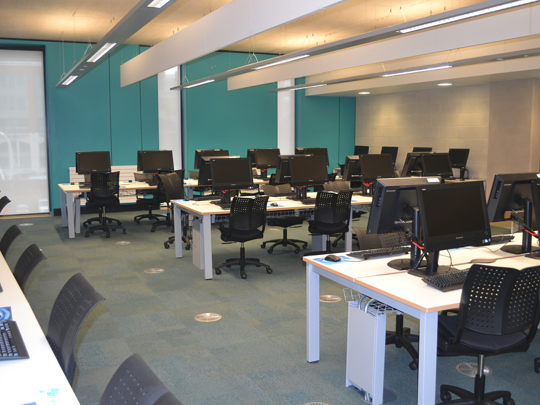
Information Technology (IT)
We have a roadmap which sets out our approach to provision and use of printers, toners, PCs and other IT/AV equipment to ensure that this is approached sustainably. We have transformed our IT to help meet our sustainability targets as part of a strategic direction to reduce our carbon footprint. Measures include:
- Replacing computers with energy efficient desktops and laptops
- Phasing out outdated, inefficient machines
- Implementing solutions to reduce printing
- Recycling all redundant IT equipment
How can you help the University meet its sustainability targets?
Tips to be more IT-savvy

Ashlea Mallett: Sustainability Manager

Chair: Jose Lopes (EMT)

Co-chair: Nick Reader (Estates)

Member: Alice Wilby (EMT)

Member: Michelle Callanan (School of Business, Tourism and Creative Industries)

Member: Mark Godwin (School of Health, Sport and Food)

Member: Lewis Walker (Teaching)

Member: Simon Faulkner (Teaching)
Member: James Burgess (Apprenticeships)

Member: Ruth Cartwright (Professional Services)

Member: Bobbie Blair (Professional Services)

Member: Pooran Kumar (Assistant Director, IT)

Member: Rachael Farrell (Catering)

Member: Melanie Hall (Marketing)
Meet our Sustainability Steering Group 2022
Our Sustainability Steering Group supports our commitment to reduce carbon dioxide emissions and waste across all our activities. The group meets quarterly to:
- Drive strategic leadership and guidance to meet Net Zero regional WM2041 and national sustainability targets
- Educate and inform staff and student behaviours
- Make recommendations to the Executive Management Team (EMT)
Chaired by Jose Lopes, the University’s Executive Director (External Engagement), the group is made up of staff and students from across the University, ensuring all views and priorities are represented.
The group is supported by an Environmental and Sustainability Panel, who provide a wider staff voice to areas of sustainability policy or proposals, contribute to working groups relating to sustainability and provide guidance and support to members of the steering group.

Sustainability news

Sustainability blog | How we are playing our part in climate action
According to research, 89% of students want their place of study to actively incorporate and promote sustainable developmen…

Birmingham Food System Strategy revealed to hospitality sector
The Birmingham Food System Strategy, which has been formed with consultations among city-wide stakeholders including The Birming…

University goes green with Chambers' Sustainable Business Series campaign
University College Birmingham will be spearheading this year’s Greater Birmingham Chambers of Commerce Sustainable B…

Local families cook Jamaican dishes with expert chef in university training kitchens
University College Birmingham’s training kitchens provided the backdrop for a community culture cooking s…

New knowledge exchange hub to boost food sustainability and healthy eating
A new knowledge exchange hub designed to help address issues around healthy eating, food justice and food system sus…

Students take on climate change challenge through University of Warwick partnership
University College Birmingham students have pitched plans to help combat climate change as part of a worldw…

Regeneration of former print works to create new sustainable construction centre
A sustainable construction skills centre is to be created by University College Birmingham as part of the rege…
University of Birmingham
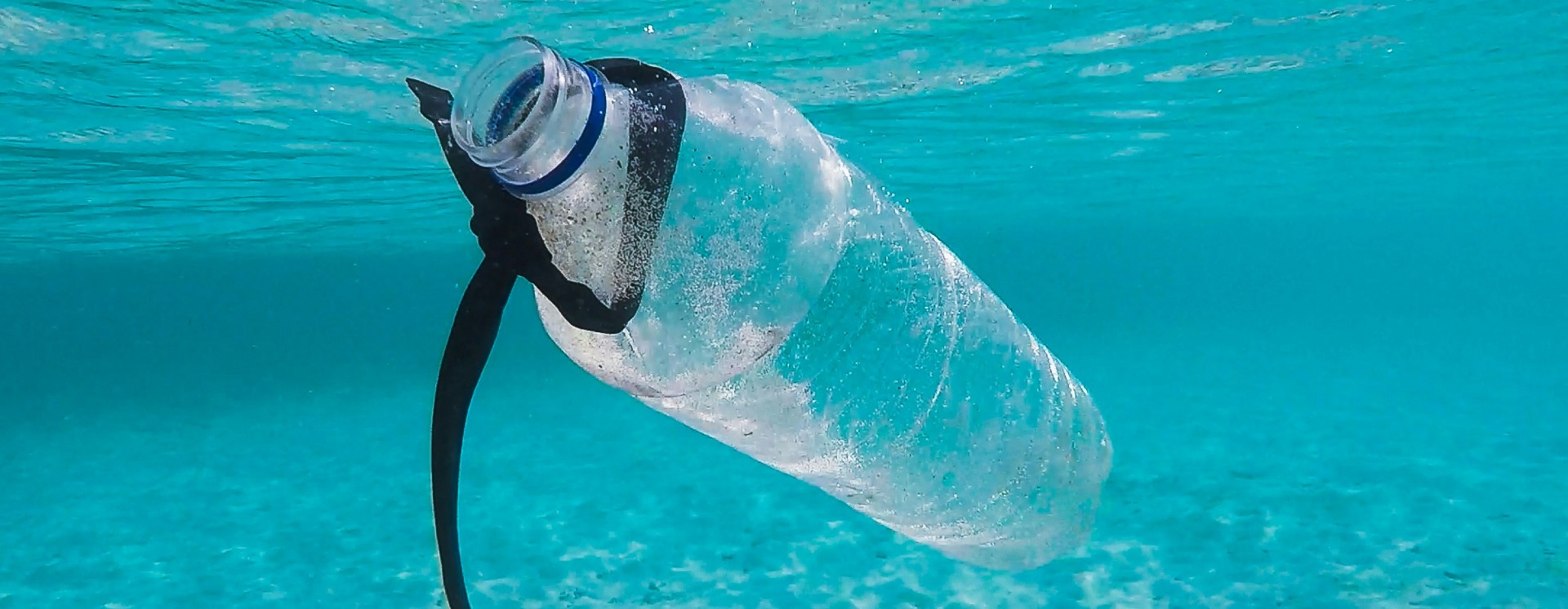
In the face of globally increasing plastic pollution, the United Kingdom stands at a crossroads. We urgently need to reimagine our relationship with plastic and the waste generated at its end of life.
From production through to its disposal into incineration or landfill, plastics are responsible for 3.3% of global greenhouse gas (GHG) emissions, with 90% of that resulting from the energy used during its production and conversion . The current linear economy of “make, use, dispose” is evidently unsustainable. We need to replace this with a circular economy model, in which polymeric carbon is valued, and stays as polymeric carbon for as long as possible.
We understand that the environmental and public health risks arising from plastic pollution are of substantial public interest. However, our survey, conducted with YouGov, reveals a stark contrast between public concern and political priorities. The public ranks plastic pollution in their top-three threats to society, alongside war and climate change. However, environmental issues concerning plastics rank lower for Members of Parliament .
There is a clear necessity for policies that align with public sentiment and scientific evidence.
The time for incremental change has passed. The Policy Commission for Sustainable Plastics presents a compelling case for the UK Government to enact bold policies that ensure plastics contribute positively to the economy without compromising the environment. Policy Commission members
As global negotiations to reach an international legally binding plastics treaty continue, there is an opportunity for the UK to play a leading role. We can utilise sustainable plastics policies to accelerate our journey towards Net Zero, as well as to benefit our economy.
Globally, transitioning to a circular plastics economy could produce 700,000 additional jobs by 2040, save the private sector $1.3 trillion, and governments $70 billion, as well as reduce the costs of social and environmental externalities by at least $3 trillion.
Our recent Policy Commission that collated evidence from a wide range of private and public sector experts has laid the groundwork for such urgently required change and presents a series of policy recommendations poised to guide the UK Government towards a future where plastics are used sustainably.
Key Recommendations for Government
Experts from across the plastics value chain gathered to present evidence on the plastics challenge, which was then integrated into a range of recommendations developed by our Commissioners. These recommendations outline the step change required in the following areas:
- Revalorising Plastic Waste : Treating plastic waste as a resource can incentivise green growth and next-generation recycling technologies.
- Tax System Reforms : Adjusting tax systems to reflect the environmental cost of plastics and promote sustainable alternatives.
- Reducing Incineration and Landfilling: Setting ambitious targets to minimise waste disposal through incineration and landfilling.
- Regulating Bioplastics and Compostables: Implementing stricter marketing regulations on compostable and biodegradable plastics to prevent misleading claims.
- Promoting Sustainable Procurement: Encouraging best practices in public sector procurement through life cycle assessments.
- Building the evidence base: Funding research to understand the full impact of plastics on human health and the environment.
- Establishing a Research Centre: Creating a national sustainable plastics innovation research centre to drive long-term solutions.
Implementing these policies can bolster the UK economy by creating jobs in the green sector and positioning the UK as a leader in sustainable plastic management. Reducing the environmental footprint of plastics will support the functioning of vital ecosystem services, preserving biodiversity and protecting public health and wellbeing.
The time for incremental change has passed. The Policy Commission for Sustainable Plastics presents a compelling case for the UK Government to enact bold policies that ensure plastics contribute positively to the economy without compromising the environment. As the public’s concern grows, so too should the government’s commitment to a sustainable plastic future. With the Policy Commission’s recommendations, the path towards a sustainable plastic future is now clearer; it is time for the UK to lead the way in plastic sustainability.
Featured staff

Professor Dr Stefan Krause
Professor of Ecohydrology and Biogeochemistry

Professor Andrew Dove
Professor of Sustainable Polymer Chemistry

Professor Fern Elsdon-Baker
Professor of Science, Knowledge and Belief in Society
Recommended pages
- Lecture timetables
- Campus maps
- Student digital services
- Staff Digital Services
- Student support
- Online registration
- Core systems
- Car parking
- Room bookings
- Staff development
Changes to student parking
To promote sustainability on campus and implement a charging structure that is fair to all, charges for student parking have increased for the first time since 2007.
These changes will be implemented from Monday 1 April so please be aware of these if you’re planning on driving onto campus.
Monday - Friday
The daily charge for student permit holders will be £2.50 chargeable from 08:00 – 18:00 in car parks available to students.
Access to campus car parks after 18:00 will be free of charge. Students who aren’t eligible for a parking permit can apply for free out of hours access only after 18:00, by emailing [email protected]
Saturday and Sunday
The flat rate fee for all students permit holders and non-permit holders will be £2.50 per day 08:00 – 18:00. Free access after 18:00.
Please note, Blue Badge users can still get free parking.
Visit the student parking intranet page for full details including eligibility .
Alternative travel
For alternative ways to travel onto campus, we recommend commuting using public transport. For local travel, check out the Transport for West Midlands website and our Sustainable Travel intranet page where you can find more information on discounts available by bus.
For further journeys, you may want to check out travelling by coach. Students can get 15% off at National Express and 10% off at Megabus.
- College of Arts and Law
- College of Engineering and Physical Sciences
- College of Life and Environmental Sciences
- College of Medical and Dental Sciences
- College of Social Sciences
Professional Services
- Academic Services
- Campus Services
- Development and Alumni Relations
- Executive Support
- External Relations
- Human Resources
- IT Services
- Legal Services
- Research Strategy and Services

- March 27, 2024 | Sunlight to Methanol: Revolutionary CO2 Conversion Achieved With Copper and Carbon Nitride
- March 27, 2024 | Heat Transfer Revolution: Exposing Flaws in 200-Year-Old Law
- March 27, 2024 | Global Warming and Plastic Pollution Are Inextricably Trapped in a “Vicious Circle”
- March 27, 2024 | Quantum Sensing Revolution: Networked Atoms for Ultimate Precision
- March 27, 2024 | Unleashing Earth’s Fury: How Next-Gen Geothermal Could Redefine Renewable Energy
Sunlight to Methanol: Revolutionary CO2 Conversion Achieved With Copper and Carbon Nitride
By University of Nottingham March 27, 2024
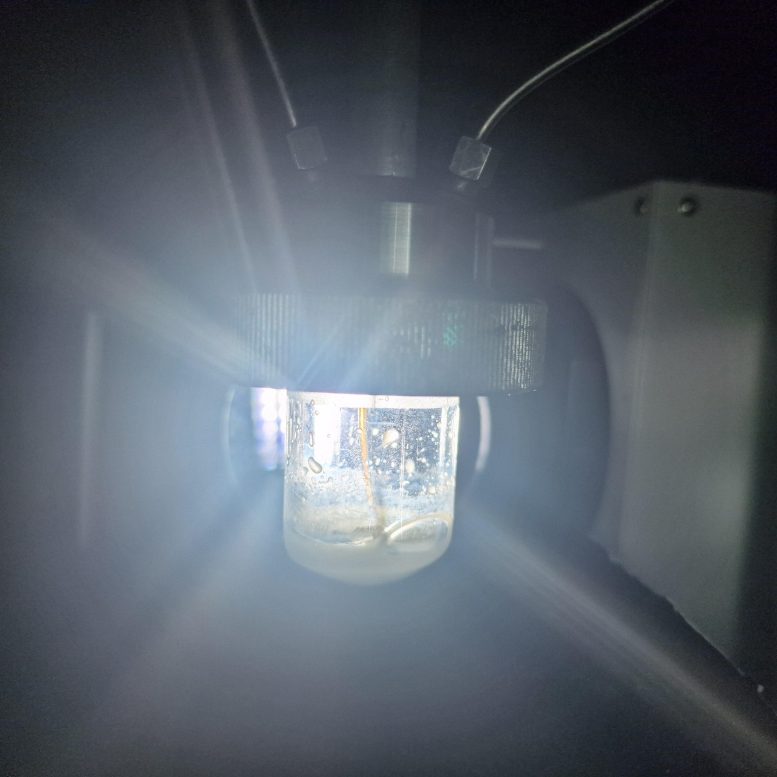
Researchers have developed a sunlight-powered process using copper and nanocrystalline carbon nitride to efficiently convert CO2 into methanol, marking a significant step towards sustainable fuel production and CO2 reduction. The picture above depicts the reactor where the catalyst is tested for turning CO2 to methanol. Credit: University of Nottingham
Researchers have successfully transformed CO 2 into methanol by shining sunlight on single atoms of copper deposited on a light-activated material, a discovery that paves the way for creating new green fuels.
An international team of researchers from the University of Nottingham ’s School of Chemistry, University of Birmingham , University of Queensland, and University of Ulm have designed a material, made up of copper anchored on nanocrystalline carbon nitride. The copper atoms are nested within the nanocrystalline structure, which allows electrons to move from carbon nitride to CO 2 , an essential step in the production of methanol from CO 2 under the influence of solar irradiation. The research has been published in the Sustainable Energy & Fuels journal of the Royal Society of Chemistry.
The Challenge of Efficiency and Selectivity
In photocatalysis, light is shone on a semiconductor material that excites electrons, enabling them to travel through the material to react with CO 2 and water, leading to a variety of useful products, including methanol, which is a green fuel. Despite recent progress, this process suffers from a lack of efficiency and selectivity.
Carbon dioxide is the greatest contributor to global warming. Although, it is possible to convert CO 2 to useful products, traditional thermal methods rely on hydrogen sourced from fossil fuels. It is important to develop alternative methods based on photo- and electrocatalysis, taking advantage of the sustainable solar energy and abundance of omnipresent water.
Nanoscale Control for Improved Catalysis
Dr Madasamy Thangamuthu, a research fellow in the School of Chemistry, University of Nottingham, who co-led the research team, said: “There is a large variety of different materials used in photocatalysis. It is important that the photocatalyst absorbs light and separates charge carriers with high efficiency. In our approach, we control the material at the nanoscale . We developed a new form of carbon nitride with crystalline nanoscale domains that allow efficient interaction with light as well as sufficient charge separation.”
The researchers devised a process of heating carbon nitride to the required degree of crystallinity, maximizing the functional properties of this material for photocatalysis. Using magnetron sputtering, they deposited atomic copper in a solventless process, allowing intimate contact between the semiconductor and metal atoms.
Surprising Efficiency Gains
Tara LeMercier, a PhD student who carried out the experimental work at the University of Nottingham, School of Chemistry, said: “We measured the current generated by light and used it as a criterion to judge the quality of the catalyst. Even without copper, the new form of carbon nitride is 44 times more active than traditional carbon nitride. However, to our surprise, the addition of only 1 mg of copper per 1 g of carbon nitride quadrupled this efficiency. Most importantly the selectivity changed from methane, another greenhouse gas, to methanol, a valuable green fuel.”
Professor Andrei Khlobystov, School of Chemistry, University of Nottingham, said: “Carbon dioxide valorization holds the key for achieving the net-zero ambition of the UK. It is vitally important to ensure the sustainability of our catalyst materials for this important reaction. A big advantage of the new catalyst is that it consists of sustainable elements – carbon, nitrogen, and copper – all highly abundant on our planet.”
This invention represents a significant step towards a deep understanding of photocatalytic materials in CO2 conversion. It opens a pathway for creating highly selective and tuneable catalysts where the desired product could be dialed up by controlling the catalyst at the nanoscale.
Reference: “Synergy of nanocrystalline carbon nitride with Cu single atom catalyst leads to selective photocatalytic reduction of CO2 to methanol” by Tara M. LeMercier, Madasamy Thangamuthu, Emerson C. Kohlrausch, Yifan Chen, Craig T. Stoppiello, Michael W. Fay, Graham A. Rance, Gazi N. Aliev, Wolfgang Theis, Johannes Biskupek, Ute Kaiser, Anabel E. Lanterna, Jesum Alves Fernandes and Andrei N. Khlobystov, 6 March 2024, Sustainable Energy & Fuels . DOI: 10.1039/D4SE00028E
This work is funded by the EPSRC Programme Grant ‘Metal atoms on surfaces and interfaces (MASI) for sustainable future’ www.masi.ac.uk which is set to develop catalyst materials for the conversion of three key molecules – carbon dioxide, hydrogen, and ammonia – crucially important for economy and environment. MASI catalysts are made in an atom-efficient way to ensure sustainable use of chemical elements without depleting supplies of rare elements and making most of the earth’s abundant elements, such as carbon and base metals.
More on SciTechDaily

Tenfold Teamwork: ISS Crew Expansion Sparks Collaborative Science
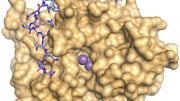
Scientists Report a Big Leap in Understanding How PP1 Interacts with Other Proteins

100x Efficiency: MIT’s Machine-Learning System Based on Light Could Yield More Powerful Large Language Models

Cancer Cells May Grow More Easily than Thought

New Study Reveals Why Some People Develop Progressive Multiple Sclerosis

Neurobiologists Block the Effects of Stress

New System Allows Severely Motor-Impaired Individuals To Type Quickly and Accurately

Astronomers Choose Primary Landing Site for Rosetta’s Lander
Be the first to comment on "sunlight to methanol: revolutionary co2 conversion achieved with copper and carbon nitride", leave a comment cancel reply.
Email address is optional. If provided, your email will not be published or shared.
Save my name, email, and website in this browser for the next time I comment.

UK-Germany applied research collaboration on green energy and sustainable resources
University of birmingham and fraunhofer umsicht renew partnership.
Press Release / March 26, 2024
The University of Birmingham and Fraunhofer UMSICHT are renewing their partnership addressing the practical challenges of delivering green energy and renewable resources – looking to broaden their collaboration.
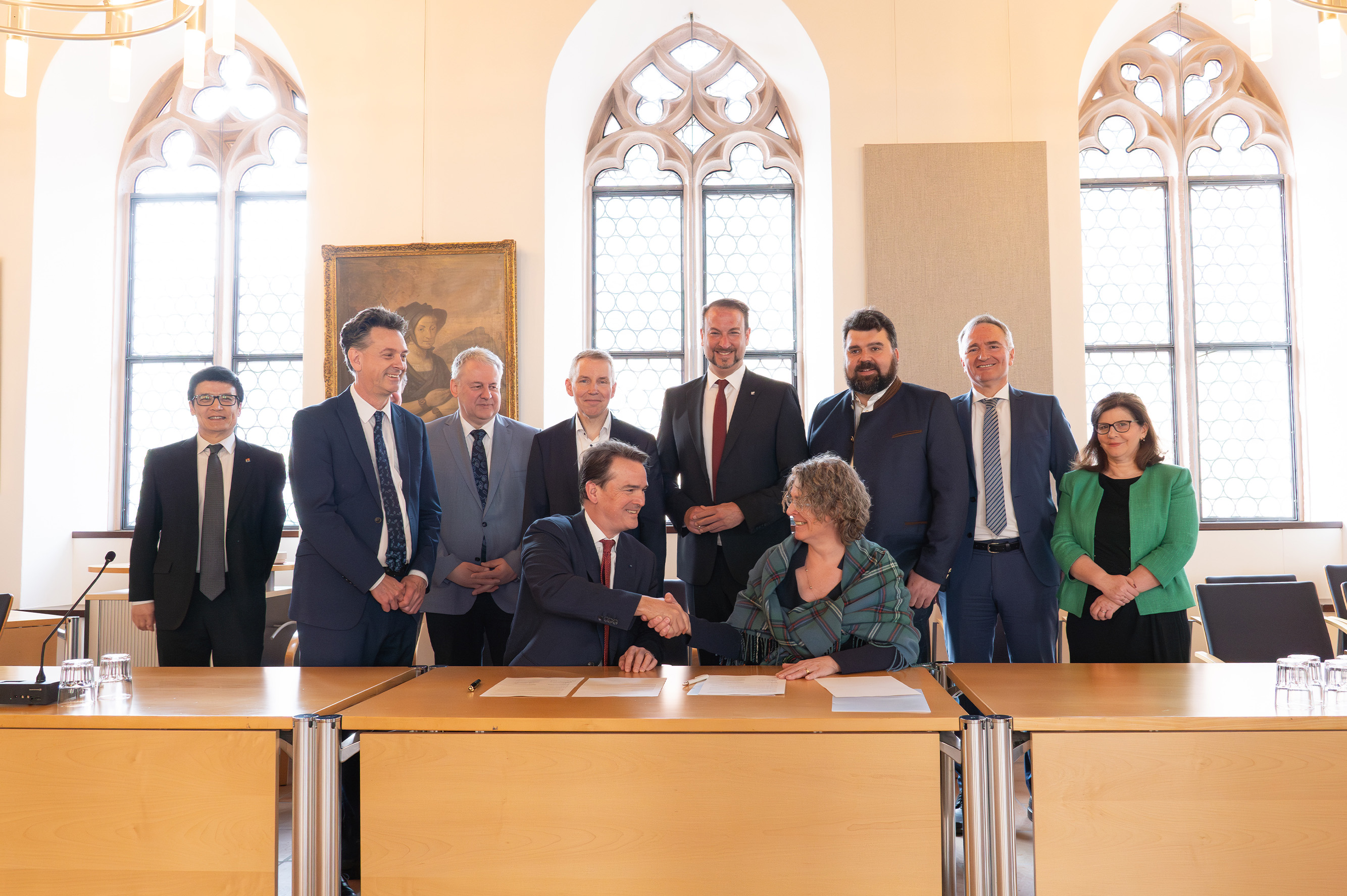
Professor Robin Mason, Pro-Vice-Chancellor (International) at the University of Birmingham, and Professor Matthias Franke, Director of Fraunhofer UMSICHT Institute Branch Sulzbach-Rosenberg, today (26 Mar) confirmed a four-year extension to the original 2017 partnership agreement.
Since 2020, there have been 28 co-authored papers between the University of Birmingham and Fraunhofer UMSICHT – largely in energy, environmental science, Chemical Engineering, Chemistry, Engineering, and Agricultural and Biological Sciences. With the To-Syn-Fuel and FlexJet projects on biofuels from residual and waste materials, two joint research projects in the HORIZON 2020 programme were successfully processed.
The partnership’s scope has already grown from its original focus on energy and waste management, with future collaborative works involving carbon capture and utilisation , renewable energy, heat storage, hydrogen production and utilisation, critical elements and materials, and polymers recycling/chemical recycling.
Signing of the partnership in Sulzbach-Rosenberg town hall
Speaking after the special signing ceremony at Sulzbach-Rosenberg town hall, Germany, Professor Robin Mason commented : »We are proud of the great work achieved by our partnership. As our global community consumes ever-increasing amounts of energy, collaborative research that helps to deliver green and sustainable energy becomes ever-more important. We look forward to aligning the University of Birmingham’s flair for research innovation with Fraunhofer UMSICHT’s applied research expertise to extend our partnership across a range of areas of shared interest that will help to change people’s lives for the better.«
Professor Matthias Franke commented : »Renewable energies, but also the transformation to sustainable, emission-free raw materials, especially carbon - these are the challenges facing the industry today. Our application-orientated research in the fields of carbon conversion, recycling, biofuels and CCU / CCUS dovetail perfectly with the cutting-edge research in Birmingham to meet these demands.«
The practical outcome of the partnership can be seen, for example, at Tyseley Energy Park, where the University of Birmingham is active as a development partner. A research plant based on Fraunhofer UMSICHT technology is operated there. It converts biogenic residues into liquid energy carriers and chemicals.
Sulzbach-Rosenberg Mayor Stefan Frank commented: »The collaboration between Fraunhofer UMSICHT Sulzbach-Rosenberg and a global Top 100 university demonstrates that application-oriented research can be successful in rural areas. One reason for this is certainly that it is possible to demonstrate innovative technologies on a large-scale, which can sometimes be challenging to do in an urban environment.«
The University of Birmingham’s research links to Germany are strong and since 2018 has also had a partnership with Bundesanstalt für Materialforschung und -prüfung (BAM) - a senior scientific and technical federal institute with responsibility to the Federal Ministry for Economic Affairs and Energy in Germany. The University and BAM share wide-ranging research interests relating to Energy, Additive Manufacturing, Chemistry & Materials, Life & Environmental Sciences, and Engineering.
Information on the University of Birmingham and Fraunhofer UMSICHT
The University of Birmingham is one of the top 100 universities in the world. Its work brings people from all over the world to Birmingham, including researchers, teaching staff and more than 8,000 international students from over 150 countries.
The Fraunhofer Institute for Environmental, Safety and Energy Technology UMSICHT is part of the Fraunhofer-Gesellschaft based in Germany, the world's leading organization for applied research with more than 30,000 employees. Fraunhofer UMSICHT conducts research in the fields of circular economy, carbon management, green hydrogen and decentralized energy systems. It develops industrially feasible technologies, products and services and brings them to application. At three locations in Germany, Fraunhofer UMSICHT generates a turnover of over 57.8 million euros with 608 employees.
The Fraunhofer-Gesellschaft , based in Germany, is the world's leading organization for application-oriented research. With its focus on future-oriented key technologies and the utilization of results in business and industry, it plays a central role in the innovation process. As a trailblazer and driving force for innovative developments and scientific excellence, it helps to in shaping our society and our future. Founded in 1949, the organization currently operates 76 institutes and research facilities in Germany. More than 30,000 employees, most of whom are trained in the natural sciences or engineering, work on the annual research volume of 2.9 billion euros. Contract research accounts for 2.5 billion euros of this total.
Last modified: March 26, 2024
Research lights up process for turning CO2 into sustainable fuel
Researchers have successfully transformed CO 2 into methanol by shining sunlight on single atoms of copper deposited on a light-activated material, a discovery that paves the way for creating new green fuels.
An international team of researchers from the University of Nottingham's School of Chemistry, University of Birmingham, University of Queensland and University of Ulm have designed a material, made up of copper anchored on nanocrystalline carbon nitride. The copper atoms are nested within the nanocrystalline structure, which allows electrons to move from carbon nitride to CO 2 , an essential step in the production of methanol from CO 2 under the influence of solar irradiation. The research has been published in the Sustainable Energy & Fuels Journal of the Royal Society of Chemistry.
In photocatalysis, light is shone on a semiconductor material that excites electrons, enabling them to travel through the material to react with CO 2 and water, leading to a variety of useful products, including methanol, which is a green fuel. Despite recent progress, this process suffers from a lack of efficiency and selectivity.
Carbon dioxide is the greatest contributor to global warming. Although, it is possible to convert CO 2 to useful products, traditional thermal methods rely on hydrogen sourced from fossil fuels. It is important to develop alternative methods based on photo- and electrocatalysis, taking advantage of the sustainable solar energy and abundance of omnipresent water.
Dr Madasamy Thangamuthu, a research fellow in the School of Chemistry, University of Nottingham, who co-led the research team, said: "There is a large variety of different materials used in photocatalysis. It is important that the photocatalyst absorbs light and separates charge carriers with high efficiency. In our approach, we control the material at the nanoscale. We developed a new form of carbon nitride with crystalline nanoscale domains that allow efficient interaction with light as well as sufficient charge separation."
The researchers devised a process of heating carbon nitride to the required degree of crystallinity, maximising the functional properties of this material for photocatalysis. Using magnetron sputtering, they deposited atomic copper in a solventless process, allowing intimate contact between the semiconductor and metal atoms.
Tara LeMercier, a PhD student who carried out the experimental work at the University of Nottingham, School of Chemistry, said: "We measured the current generated by light and used it as a criterion to judge the quality of the catalyst. Even without copper, the new form of carbon nitride is 44 times more active than traditional carbon nitride. However, to our surprise, the addition of only 1 mg of copper per 1 g of carbon nitride quadrupled this efficiency. Most importantly the selectivity changed from methane, another greenhouse gas, to methanol, a valuable green fuel."
Professor Andrei Khlobystov, School of Chemistry, University of Nottingham, said: "Carbon dioxide valorisation holds the key for achieving the net-zero ambition of the UK. It is vitally important to ensure the sustainability of our catalyst materials for this important reaction. A big advantage of the new catalyst is that it consists of sustainable elements -- carbon, nitrogen and copper -- all highly abundant on our planet."
This invention represents a significant step towards a deep understanding of photocatalytic materials in CO 2 conversion. It opens a pathway for creating highly selective and tuneable catalysts where the desired product could be dialled up by controlling the catalyst at the nanoscale.
This work is funded by the EPSRC Programme Grant 'Metal atoms on surfaces and interfaces (MASI) for sustainable future' which is set to develop catalyst materials for the conversion of three key molecules -- carbon dioxide, hydrogen and ammonia -- crucially important for economy and environment. MASI catalysts are made in an atom-efficient way to ensure sustainable use of chemical elements without depleting supplies of rare elements and making most of the earth's abundant elements, such as carbon and base metals.
The University of Nottingham is dedicated to championing green and sustainable technologies. The Zero Carbon Cluster has been set in the East Midlands to accelerate the development and deployment of innovation in green industries and advanced manufacturing.
- Energy and Resources
- Organic Chemistry
- Nanotechnology
- Sustainability
- Global Warming
- Geochemistry
- Energy and the Environment
- Activated carbon
- Scanning tunneling microscope
- Common ethanol fuel mixtures
- Nanoparticle
- Hydrogen-like atom
- Electroluminescence
- Solar power
Story Source:
Materials provided by University of Nottingham . Note: Content may be edited for style and length.
Journal Reference :
- Tara M LeMercier, Madasamy Thangamuthu, Emerson C Kohlrausch, Yifan Chen, Craig Stoppiello, Michael W Fay, Graham A. Rance, Gazi N Aliev, Wolfgang Theis, Johannes Biskupek, Ute Kaiser, Anabel E. Lanterna, Jesum Alves Fernandes, Andrei Khlobystov. Synergy of Nanocrystalline Carbon Nitride with Cu Single Atom Catalyst Leads to Selective Photocatalytic Reduction of CO2 to Methanol . Sustainable Energy & Fuels , 2024; DOI: 10.1039/D4SE00028E
Cite This Page :
Explore More
- Robot, Can You Say 'Cheese'?
- Researchers Turn Back the Clock On Cancer Cells
- Making Long-Term Memories: Nerve-Cell Damage
- A Solar Cell You Can Bend and Soak in Water
- Risk Factors for Faster Brain Aging
- Deep Space Objects Can Become 'Ice Bombs'
- Want to Feel Young? Protect Your Sleep
- Century-Old Powdered Milk in Antarctica
- New Artificial Reef Stands Up to Storms
- Persistent Hiccups in a Far-Off Galaxy
Trending Topics
Strange & offbeat.

Research lights up process for turning CO₂ into sustainable fuel
R esearchers have successfully transformed CO 2 into methanol by shining sunlight on single atoms of copper deposited on a light-activated material, a discovery that paves the way for creating new green fuels.
An international team of researchers from the University of Nottingham's School of Chemistry, University of Birmingham, University of Queensland, and University of Ulm have designed a material made up of copper anchored on nanocrystalline carbon nitride.
The copper atoms are nested within the nanocrystalline structure, which allows electrons to move from carbon nitride to CO 2 , an essential step in the production of methanol from CO 2 under the influence of solar irradiation. The research has been published in the Sustainable Energy & Fuels journal.
In photocatalysis, light is shone on a semiconductor material that excites electrons, enabling them to travel through the material to react with CO 2 and water, leading to a variety of useful products, including methanol, which is a green fuel. Despite recent progress, this process suffers from a lack of efficiency and selectivity.
Carbon dioxide is the greatest contributor to global warming. Although it is possible to convert CO 2 to useful products, traditional thermal methods rely on hydrogen sourced from fossil fuels. It is important to develop alternative methods based on photo- and electrocatalysis, taking advantage of the sustainable solar energy and abundance of omnipresent water.
Dr. Madasamy Thangamuthu, a research fellow in the School of Chemistry, University of Nottingham, who co-led the research team, said, "There is a large variety of different materials used in photocatalysis. It is important that the photocatalyst absorbs light and separates charge carriers with high efficiency. In our approach, we control the material at the nanoscale. We developed a new form of carbon nitride with crystalline nanoscale domains that allow efficient interaction with light as well as sufficient charge separation."
The researchers devised a process of heating carbon nitride to the required degree of crystallinity, maximizing the functional properties of this material for photocatalysis. Using magnetron sputtering, they deposited atomic copper in a solventless process, allowing intimate contact between the semiconductor and metal atoms.
Tara LeMercier, a Ph.D. student who carried out the experimental work at the University of Nottingham School of Chemistry, said, "We measured the current generated by light and used it as a criterion to judge the quality of the catalyst. Even without copper, the new form of carbon nitride is 44 times more active than traditional carbon nitride."
"However, to our surprise, the addition of only 1 mg of copper per 1 g of carbon nitride quadrupled this efficiency. Most importantly, the selectivity changed from methane, another greenhouse gas, to methanol, a valuable green fuel."
Professor Andrei Khlobystov, School of Chemistry, University of Nottingham, said, "Carbon dioxide valorization holds the key for achieving the net-zero ambition of the UK. It is vitally important to ensure the sustainability of our catalyst materials for this important reaction. A big advantage of the new catalyst is that it consists of sustainable elements—carbon, nitrogen, and copper—all highly abundant on our planet."
This invention represents a significant step towards a deep understanding of photocatalytic materials in CO 2 conversion. It opens a pathway for creating highly selective and tunable catalysts where the desired product could be dialed up by controlling the catalyst at the nanoscale.
More information: Tara M LeMercier et al, Synergy of Nanocrystalline Carbon Nitride with Cu Single Atom Catalyst Leads to Selective Photocatalytic Reduction of CO 2 to Methanol, Sustainable Energy & Fuels (2024). DOI: 10.1039/D4SE00028E
Provided by University of Nottingham
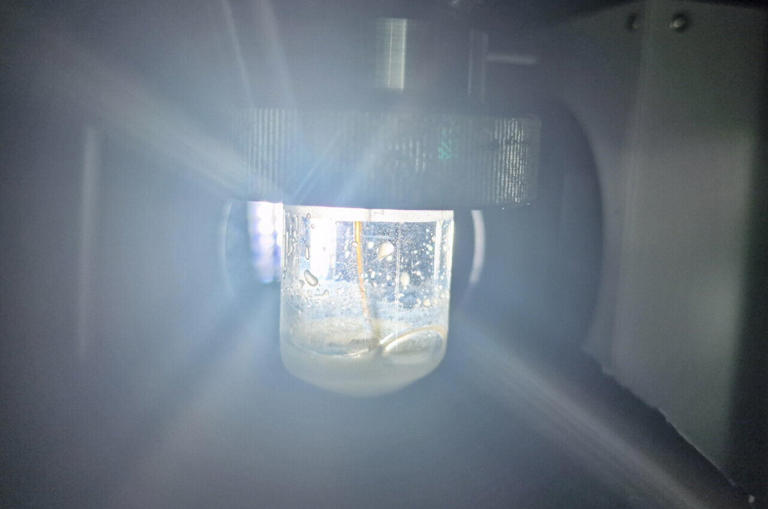
Baltimore bridge collapse: What happened and what is the death toll so far?
When did the baltimore bridge collapse, what is the death toll so far, why did the bridge collapse, who will pay for the damage and how much will the bridge cost.

HOW LONG WILL IT TAKE TO REBUILD THE BRIDGE?
What ship hit the baltimore bridge, what do we know about the bridge that collapsed.

HOW WILL THE BRIDGE COLLAPSE IMPACT THE BALTIMORE PORT?

Get weekly news and analysis on the U.S. elections and how it matters to the world with the newsletter On the Campaign Trail. Sign up here.
Writing by Lisa Shumaker; Editing by Daniel Wallis and Josie Kao
Our Standards: The Thomson Reuters Trust Principles. , opens new tab

Thomson Reuters
Lisa's journalism career spans two decades, and she currently serves as the Americas Day Editor for the Global News Desk. She played a pivotal role in tracking the COVID pandemic and leading initiatives in speed, headline writing and multimedia. She has worked closely with the finance and company news teams on major stories, such as the departures of Twitter CEO Jack Dorsey and Amazon’s Jeff Bezos and significant developments at Apple, Alphabet, Facebook and Tesla. Her dedication and hard work have been recognized with the 2010 Desk Editor of the Year award and a Journalist of the Year nomination in 2020. Lisa is passionate about visual and long-form storytelling. She holds a degree in both psychology and journalism from Penn State University.

Divers recovered the remains of two of the six missing workers more than a day after a cargo ship smashed into Baltimore's Francis Scott Key Bridge. The bodies of two men were found in a red pickup truck submerged in the icy waters of the Patapsco River. Rescuers pulled two workers from the water alive on Tuesday, and one was hospitalized.
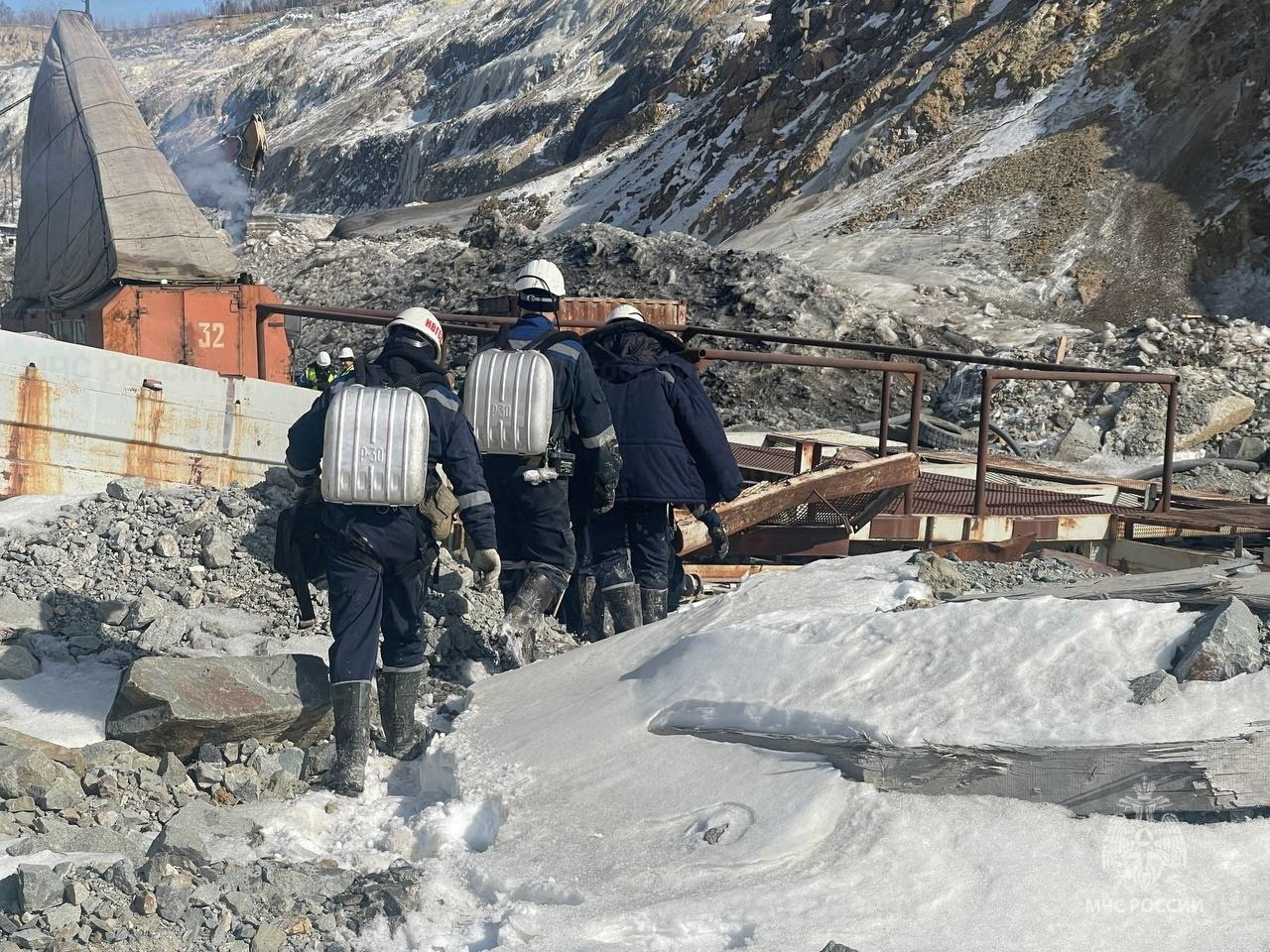

IMAGES
COMMENTS
A host of information on commuting and sustainable travel to and from the University of Birmingham. Pages include links to regional journey planners and campus maps, West Midlands rail and bus tickets and passes, facilities for cycling and resources for cyclists and pedestrians.
The University of Birmingham aims to reduce the number of single occupancy car journeys taken by staff, students and visitors, and to reduce the carbon footprint of its business travel. This document sets out the actions and resources required to meet the targets, such as analysing travel surveys, promoting sustainable travel initiatives, and improving the travel experience on campus.
University of Birmingham Sustainable Travel Plan 2016-2021 2 Action Plan 9.1 The University of Birmingham is seeking to reduce the number of single occupancy car journeys taken to campus by staff, students and visitors. It is also seeking to reduce the carbon footprint of its business travel.
To be set up as a booker, to make travel arrangements, or to learn more about the Clarity booking portal, then our Sustainable Travel page will provide all details. ... University of Birmingham. Edgbaston Birmingham B15 2TT United Kingdom Main Switchboard: Tel: +44 (0)121 414 3344 Fax: +44 (0)121 414 3971 ...
Another fantastic step for sustainable travel at the University has been a project that Charlotte (Welfare and Community Officer) and Jules (Education Officer) have been working on, in collaboration with National Express and the University. ... Registered Office: University of Birmingham Guild of Students, Edgbaston Park Road, Birmingham, B15 2TU.
The University of Birmingham's Environmental and related policies state their overall aims and objectives. They are committed to improving performance and engaging with the University community. ... Sustainable travel Carbon management Biodiversity Sustainable food Student initiatives. The number one resource for sustainability in post-16 ...
Sustainable operations achieved a 20% emissions reduction between 2005 and 2020. Committing to Net Zero Carbon Scope 1 and 2 by 2035 and Scope 3 by 2045. We have country-leading, award-winning Electric Vehicle fleets. Winning the Bronze Green World award in 2018. We maintain over 9,200 trees.
Here are just a few ways we can help you stand out in the world of sustainable events: If you choose our catering, you're choosing high animal welfare standards and high-quality, ethically sourced ingredients; Electric vehicle charging points and bike and e-scooter hiring facilities are available across campus to support sustainable travel
Sustainable Travel-University of Birmingham. Our University encourages staff and students to be sustainable through a number of ways to travel sustainably to improve the impact it has on the environment. Rail. The University has its own train station - simply called University - right on the main Edgbaston campus. From here it is only two stops ...
The purpose of our Travel Plans are to encourage the use of sustainable transport and anticipate the changes in travel provision and behaviour. City Centre Campus: Travel Plan (2018-20) City South Campus: Travel Plan (2018-20) BCU Travel Action Plan 2018-2020. A staff and student travel survey was planned for March 2020 to input into a Travel ...
The Sustainable Innovation and Entrepreneurship MSc has been designed with industry experts from sustainable business, social enterprises, and social entrepreneurs to ensure you develop the critical knowledge and skills needed to tackle complex, sustainable innovations and entrepreneurial challenges. ... Careers Network is the University of ...
The University of Birmingham makes a significant contribution to sustainable development, not only in its role as an globally recognised provider of research and teaching, but also in the way it performs as a business engaging positively with the local and wider community. Whether it's their environmental policies, research into sustainable energies or their schemes to encourage staff and ...
If you still have any questions or would like to get in touch, please email us at [email protected]. Alternatively, Staff and Students can use our internal communications guide. There are opportunities to get involved in sustainability initiatives at the University of Birmingham whether you are a student, member of staff, or a ...
We support and encourage diversity and inclusion and promote understanding and collaboration. We take steps to measure and increase our social impact, which enables us to deliver our civic responsibilities and commitments. Small changes make a big difference Our role in the University's sustainable strategy is to deliver responsible events ...
Our Sustainability Steering Group supports our commitment to reduce carbon dioxide emissions and waste across all our activities. The group meets quarterly to: Drive strategic leadership and guidance to meet Net Zero regional WM2041 and national sustainability targets. Educate and inform staff and student behaviours.
As global negotiations to reach an international legally binding plastics treaty continue, there is an opportunity for the UK to play a leading role. We can utilise sustainable plastics policies to accelerate our journey towards Net Zero, as well as to benefit our economy. Globally, transitioning to a circular plastics economy could produce 700,000 additional jobs by 2040, save the private ...
The daily charge for student permit holders will be £2.50 chargeable from 08:00 - 18:00 in car parks available to students. Access to campus car parks after 18:00 will be free of charge. Students who aren't eligible for a parking permit can apply for free out of hours access only after 18:00, by emailing [email protected].
Researchers have successfully transformed CO 2 into methanol by shining sunlight on single atoms of copper deposited on a light-activated material, a discovery that paves the way for creating new green fuels.. An international team of researchers from the University of Nottingham 's School of Chemistry, University of Birmingham, University of Queensland, and University of Ulm have designed a ...
Press Release /March 26, 2024. The University of Birmingham and Fraunhofer UMSICHT are renewing their partnership addressing the practical challenges of delivering green energy and renewable resources - looking to broaden their collaboration. Professor Robin Mason, Pro-Vice-Chancellor (International) at the University of Birmingham, and ...
An international team of scientists hailing from the University of Nottingham's School of Chemistry, University of Birmingham, University of Queensland, and University of Ulm collaborated to ...
March 25, 2024. Source: University of Nottingham. Summary: Researchers have successfully transformed CO2 into methanol by shining sunlight on single atoms of copper deposited on a light-activated ...
Please email Dr. Mark Bevensee ([email protected]) with any questions or concerns. Wednesday, April 3 at 11:00am to 7:00pm. More dates through April 4, 2024. Honors Hall. 1321 10th Ave S Birmingham, Alabama 35233. Event Type. Conferences & Fairs, Lectures & Presentations, Seminar, Workshop/Educational. Topic.
Professor Andrei Khlobystov, School of Chemistry, University of Nottingham, said, "Carbon dioxide valorization holds the key for achieving the net-zero ambition of the UK.
A U.S. Coast Guard search and rescue helicopter flies over the Dali cargo vessel, which crashed into the Francis Scott Key Bridge causing it to collapse in Baltimore, Maryland, U.S., March 26 ...